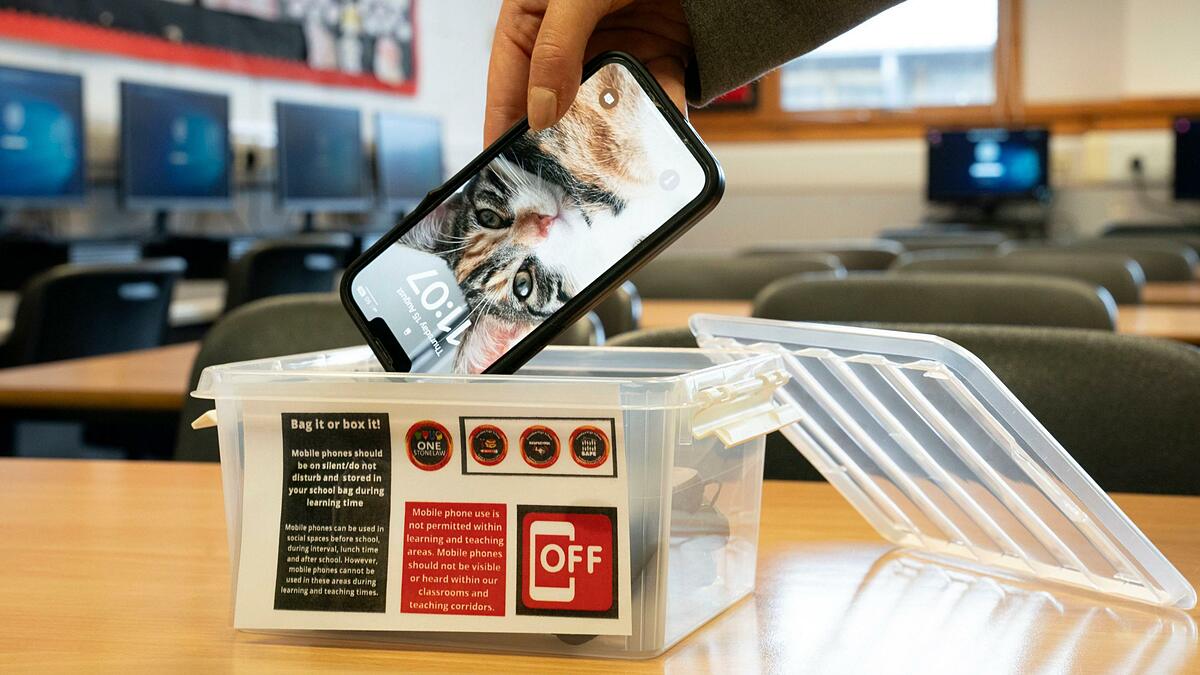New York has become the largest US state to ban smartphones in public schools. Starting in the fall of 2025, nearly 2.5 million students from kindergarten through 12th grade will not be allowed to use phones during school hours, including lunch and recess, unless permitted by a teacher.
New York is not alone. Several other states, both liberal and conservative, have similar policies. In 2025, six states—Alabama, Arkansas, Nebraska, North Dakota, Oklahoma, and West Virginia—passed laws requiring schools to develop phone restriction policies.
To date, 17 states and Washington D.C. have enacted regulations banning or restricting phones in schools. This trend reflects growing bipartisan support, with 67% of US adults favoring a ban during school hours, according to the Pew Research Center.
The rationale stems from clear evidence of smartphones' negative impact on students.
Distraction in learning is a major concern. Studies show that even having a phone nearby makes it difficult for students to concentrate. One study found that students can take up to 20 minutes to regain focus after being distracted by a mobile device. Removing phones from classrooms has improved learning, with some states reporting higher test scores after implementing bans. This is particularly critical as nationwide test scores have not yet recovered from pandemic lockdowns.
Teenagers' mental health is also at risk. Jonathan Haidt's bestselling book "The Coddling of the American Mind" highlighted smartphones' negative psychological impact on young people. Haidt pointed out that the sharp increase in anxiety, depression, self-harm, and suicidal ideation among teens (especially girls) coincided with the rise of smartphones and social media (around 2012).
Social media, filled with curated images and stories of others' seemingly perfect lives, makes young people feel inadequate, leading to insecurity and depression. The pressure to present a perfect self online for likes and acceptance is immense.
Smartphones and their blue light (especially at night) disrupt children's natural sleep cycles. The fear of missing out (FOMO) and the urge to constantly check phones keep many young people up late, leading to chronic sleep deprivation. Lack of sleep negatively impacts mood, concentration, and overall mental health.
Social media apps are designed to trigger the brain's dopamine system, creating instant gratification with every notification, like, or comment. This can lead to addictive behavior, especially in adolescents whose impulse control is still developing. Phone dependence can cause anxiety and irritability when the device is absent or online interaction wanes.
Haidt suggests phone-free schools, banning phones for children before high school, and restricting social media use to those 16 and older.
 |
Many schools in the US and around the world ban student smartphone use. Photo: PA News |
Many schools in the US and around the world ban student smartphone use. Photo: PA News
The phone ban movement is not limited to the US. In Australia, the government has banned social media for those under 16. French President Emmanuel Macron has proposed an EU-wide minimum age of 15 for social media use, citing it as a factor in youth violence. If the EU fails to agree, France says it will act unilaterally.
At the federal level in the US, the Senate is discussing the "Stop Enabling Sex Traffickers Act," which would require mental health warnings on social media platforms.
On 10/7, Ho Chi Minh City's Department of Education and Training also plans to ban student phone use at school, including during recess, unless permitted by teachers, starting in the 2025-2026 school year.
While statewide phone bans make implementation easier for schools, they are not without controversy. Some parents object, wanting to contact their children throughout the day or believing such restrictions should be a family decision. However, 72% of high school teachers identify phones as a major distraction. Encouragingly, after adjusting to the new rules, many students have admitted to preferring phone-free classrooms, according to Pew.
Thuc Linh (Conversation)












